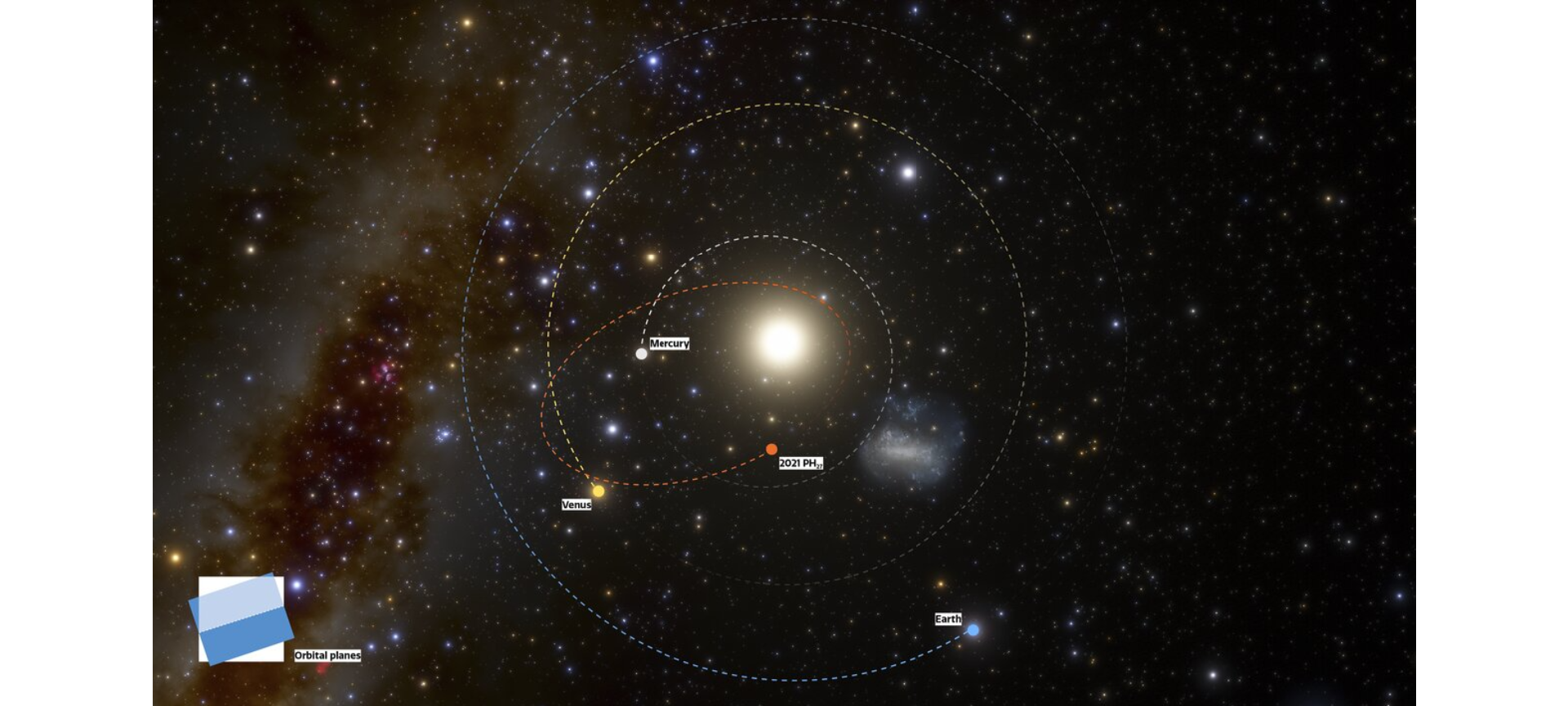 |
| Image - CTIO/NOIRLab/NSF/AURA/J. da Silva (Spaceengine) |
However, the newly discovered Asteroid, 2021 PH27, follows an orbital path in which it passes much closer to the Sun than the planet Mercury. This asteroid is about 1 kilometer in size. Scientists say that there are very few asteroids of such a large size in the inner solar system that exist and there is no information about them.
 |
Image - CTIO/NOIRLab/NSF/AURA/J. da Silva (Spaceengine) |
According to scientists, when this asteroid reaches close to the sun, its surface temperature reaches 500 degrees Celsius. At this temperature, even the glass melts. He said that this asteroid passing through such a temperature would probably be made of metals like iron. Not only this, its orbital path is also unstable and it crosses the planets Mercury and Venus. He said that in future this asteroid may collide with the planet Mercury or Venus or even the Sun.
 |
| Orbit diagram of near-Earth asteroid 2021 PH27 compared to the inner planets. Positions as of 2021-08-21 00:00 UT [NASA/JPL-SSD, Public domain, via Wikimedia Commons] |
2021 PH27 was first spotted on Aug. 13 by astronomers using the Dark Energy Camera (DEC), a powerful multipurpose instrument mounted on the Víctor M. Blanco 4-meter Telescope at the Cerro Tololo Inter-American Observatory in Chile.
The asteroid was discovered by Scott S. Sheppard of the Carnegie Institution of Science in data collected by the Dark Energy Camera (DECam) mounted on the Víctor M. Blanco 4-meter Telescope at Cerro Tololo Inter-American Observatory (CTIO) in Chile.
The discovery images of the asteroid were taken by Ian Dell’antonio and Shenming Fu of Brown University in the twilight skies on the evening of 13 August 2021.








 IndianWeb2.com is an independent digital media platform for business, entrepreneurship, science, technology, startups, gadgets and climate change news & reviews.
IndianWeb2.com is an independent digital media platform for business, entrepreneurship, science, technology, startups, gadgets and climate change news & reviews.
ليست هناك تعليقات
إرسال تعليق